All Stories
-
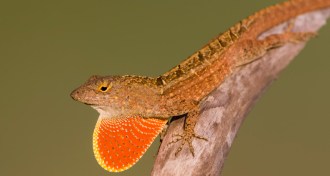 Animals
AnimalsEven on remote islands, busy ports mean more invasives
Islands with lots of trading ties are more likely to be colonized by invasive species, even when they are geographically remote, a new study of anoles reveals.
-
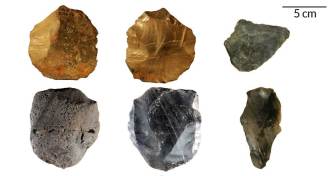 Archaeology
ArchaeologyAncient stone-tool making method arose multiple times
Hominids in both Africa and Eurasia independently invented a flake-tool technique hundreds of thousands of years ago, countering a long-held idea in archaeology.
By Meghan Rosen -
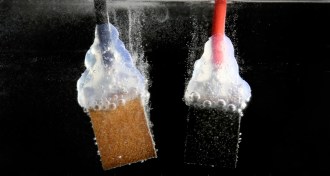 Tech
TechSolar cell powers water-to-hydrogen conversion
High efficiency could make perovskite solar cells useful for generating environmentally friendly fuel.
By Sam Lemonick -
 Neuroscience
NeuroscienceMighty muscles may stave off depression
Strong muscles protect the brain from stress-induced toxin associated with depression, a study in mice suggests.
-
 Science & Society
Science & SocietySyria’s World Heritage Sites severely damaged by war
Satellite images reveal that five of the country’s six World Heritage Sites have suffered damage and some structures have been completely destroyed.
By Beth Mole -
 Psychology
PsychologyBalancing the excitation and inhibition tightrope in depression
A new study looks at how a balance of positive and negative inputs in the lateral habenula might relate to disappointment and depression.
-
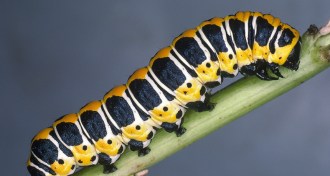 Life
LifeFledgling birds change rules for caterpillar color
An unusual experiment shows that larvae lose the advantage of warning colors during the seasonal flush of naïve predators.
By Susan Milius -
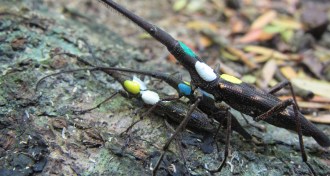 Animals
AnimalsSneaky little giraffe weevils beat big rivals
A little stealth gives smaller giraffe weevil males a leg up when competing with big ones for mates.
By Susan Milius -
 Health & Medicine
Health & MedicineRecovery time from surgery foretold
Blood samples taken from patients after surgery might reveal who is destined for a quick rebound.
By Nathan Seppa -
 Health & Medicine
Health & MedicineThe debate over spanking is short on science, high on emotion
Spanking to discipline a child sparks heated debate that reflects deep divides in our society. Studies generally show negative effects of spanking, but there are many caveats.
-
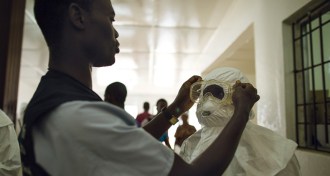 Health & Medicine
Health & MedicineMore than 1 million Ebola cases may hit West Africa by January
New projections of the outbreak suggest that without drastic improvements, weekly cases could increase from hundreds to thousands.
By Nathan Seppa and Janet Raloff -
 Astronomy
AstronomyWater found on Neptune-sized world
Just four times as wide as Earth, HAT-P-11b is the smallest exoplanet known to store water in its atmosphere.